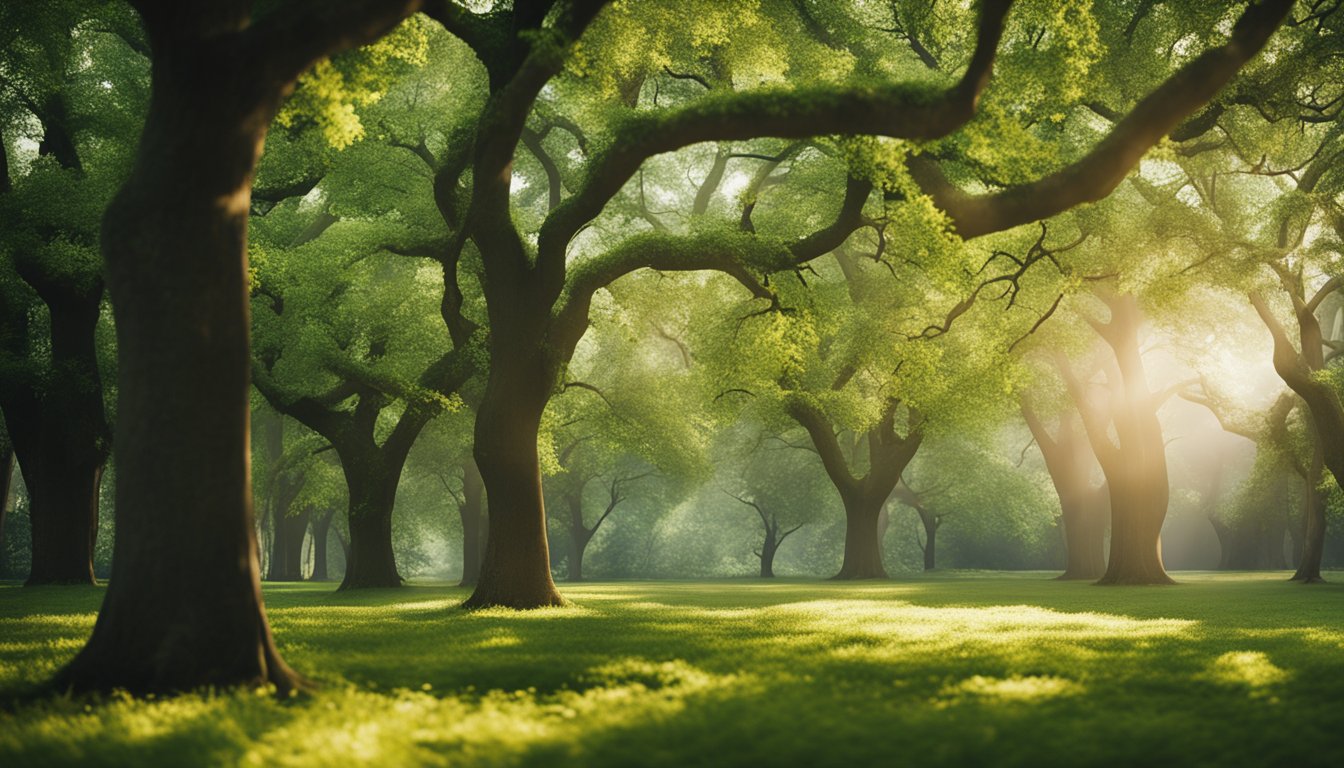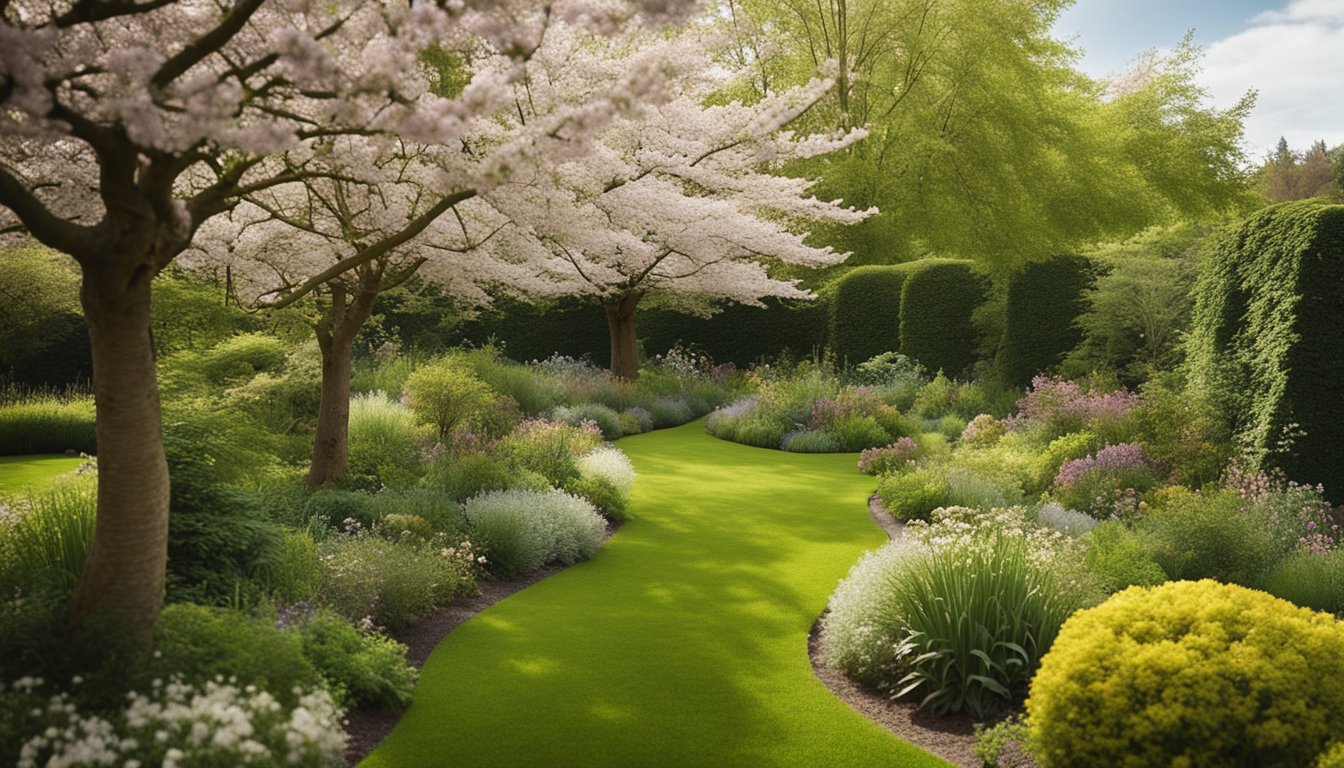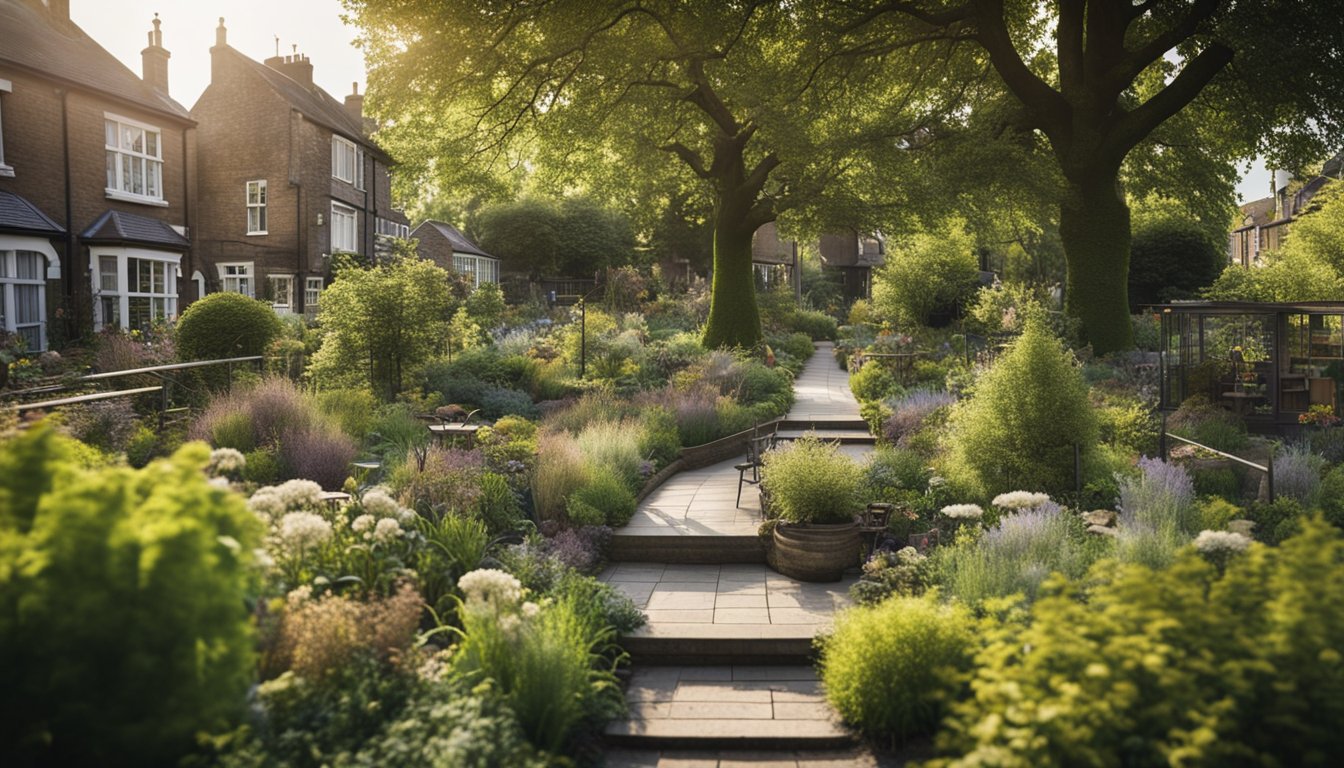Late updated: 28 Jul 2024 08:07
Written by: Emily Thornton
Best Native UK Trees For Urban Gardens: Top Picks for City Spaces
Urban gardens provide a unique opportunity to bring nature into our cities, creating green oases that benefit both people and wildlife. If you're looking to enhance your garden with native British trees, you've come to the right place. Our selection focuses on trees that are not only beautiful but also adapted to urban conditions. One of the top choices for urban gardens is the Silver Birch (Betula pendula), known for its striking white bark and delicate leaves, which thrive even in polluted city environments.

Planting native trees supports local ecosystems by providing habitat and food for wildlife. This is crucial in urban areas where natural spaces can be scarce. Another excellent option for urban gardens is the Rowan (Sorbus aucuparia), also known as the mountain ash. Its vibrant red berries attract birds, while its resilience makes it a perfect candidate for city gardens. The Field Maple (Acer campestre) is another favourite, adaptable to various soil types and known for its lovely autumn colours.
Including native trees in our urban gardens not only enhances the aesthetic appeal but also contributes to biodiversity, offering homes and nourishment to many species. Trees like the Hazel (Corylus avellana) and Holly (Ilex aquifolium) are not just visually appealing but also provide seasonal interest with their flowers, nuts, and evergreen leaves. By selecting the right native trees, we can create healthier, more vibrant urban landscapes that benefit everyone.
Key Takeaways
- Native British trees enhance urban gardens and support local wildlife.
- Trees like Silver Birch, Rowan, and Field Maple are ideal for city environments.
- Including native trees boosts ecosystem health and biodiversity in urban areas.
Native UK Trees Suited for Urban Gardens

Planting native trees in urban gardens enhances biodiversity and offers numerous benefits including improved air quality, shade, and aesthetic appeal. These trees can thrive even in confined spaces and varying soil conditions, making them ideal for urban settings.
The Role of Trees in Urban Environments
Trees play a crucial role in urban environments by combating air pollution, providing shade, and enhancing the aesthetic appeal. They absorb pollutants such as nitrogen dioxide and particulate matter, thereby improving air quality. Trees also cool urban areas by providing shade, reducing the "heat island" effect commonly found in cities. These benefits contribute significantly to the well-being of residents and the overall health of the urban ecosystem.
Selecting the Right Species
Choosing the right tree species for urban gardens involves considering factors such as soil type, space, and climate adaptability. Native trees are often more adapted to local soil and weather conditions, making them easier to maintain. It's also important to choose species that won't outgrow the available space or interfere with utilities. For instance, silver birch and hawthorn are hardy and can tolerate urban pollution, while rowan and holly offer visual interest with their berries and fruits, which also support local wildlife.
Popular Native Tree Options
Silver Birch
- Height: 15-20 metres
- Growth Rate: Up to 40 cm per year
- Foliage: Triangular leaves that turn golden in autumn
- Benefits: Tolerates various soil conditions and urban pollution
Rowan (Mountain Ash)
- Height: 10-15 metres
- Foliage: Pinnate leaves that turn yellow to red in autumn
- Fruits: Red berries attractive to birds
- Benefits: Suitable for smaller gardens and can tolerate partial shade
Hawthorn
- Height: Up to 15 metres
- Foliage: Lobed green leaves
- Flowers and Fruits: White flowers in spring, followed by red berries
- Benefits: Supports pollinators and is highly adaptable
Holly
- Height: 10-15 metres
- Foliage: Glossy, spiky evergreen leaves
- Fruits: Red berries lasting through winter
- Benefits: Provides year-round cover and food for wildlife
Crab Apple
- Height: 5-10 metres
- Foliage: Green leaves with autumn colours
- Fruits: Small, edible apples
- Benefits: Attractive flowers in spring and fruits that support local wildlife
Selecting the right native trees for urban gardens can ensure both ecological and aesthetic benefits, making our urban spaces greener and healthier.
Supporting Biodiversity and Ecosystem

Our urban gardens can play a crucial role in supporting local wildlife and ecosystems. By planting native UK trees, we can create habitats and food sources that help various species thrive, from birds to insects.
Benefits to Wildlife
Native trees provide essential resources for many animals. Birds, such as blackbirds and thrushes, rely on the berries and seeds produced by trees like hawthorn and rowan. These trees also offer nesting sites and protection from predators.
For mammals, such as red squirrels and hedgehogs, trees offer shelter and food. Red squirrels thrive on the nuts from hazel trees, while hedgehogs benefit from the dense shrubbery and leaf litter beneath the trees.
Creating Habitats and Food Sources
Garden trees are excellent for creating habitats. Trees like oak and willow support a wide range of insects, including caterpillars that are crucial food sources for birds. These insects are also vital for pollination and the health of our gardens.
Additionally, having a mix of trees, shrubs, and hedgerows helps increase biodiversity. Hedgerows made of native species like hawthorn and blackthorn act as corridors for wildlife, connecting different habitats. Including trees that produce nectar and pollen, such as cherry and crabapple, supports bees and other pollinators, ensuring a vibrant and balanced ecosystem.
Frequently Asked Questions
Our goal is to help you choose the best native UK trees for your urban garden. Below, we address common questions on tree selection specifically tailored for urban environments.
Which trees are most suitable for privacy in small UK urban gardens?
Silver birch and holly are great for privacy. Silver birch grows up to 15-20 meters and has light foliage that creates a natural screen. Holly, on the other hand, is evergreen and can form dense, tall hedges providing year-round privacy.
What are the top tree species recommended for promoting wildlife in confined garden spaces?
Rowan and hazel attract wildlife effectively. Rowan trees yield berries that birds love, while hazel provides nuts and habitat for various insects and small mammals. Both these trees support biodiversity in small garden spaces.
Which indigenous UK trees are known for tolerating urban pollution well?
Field maple and alder are adept at handling urban pollution. Field maple is resilient and grows well in tough conditions, while alder thrives even in compact areas with poor air quality, making them ideal for urban planting.
List the most common trees that thrive in compact urban British gardens.
Field maple, holly, and rowan are among the most commonly thriving trees in urban settings. Each of these species adapts well to confined spaces and different soil conditions, ensuring healthy growth in small gardens.
Can you identify some low-maintenance trees that are easy to cultivate in the UK's urban areas?
Holly and hazel are low-maintenance options. Holly requires minimal pruning and provides evergreen foliage. Hazel grows quickly without much need for intervention and is quite hardy, making both trees excellent choices for urban gardeners seeking ease of care.
What varieties of trees can one plant in UK cottage gardens that require minimal space?
Silver birch and rowan are perfect for cottage gardens with limited space. Silver birch’s light canopy and trunk can fit well into small gardens, while rowan’s compact size and ornamental berries add a unique charm to cottage-style settings.
